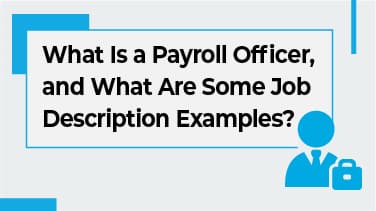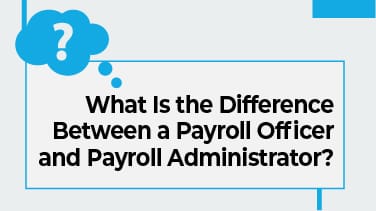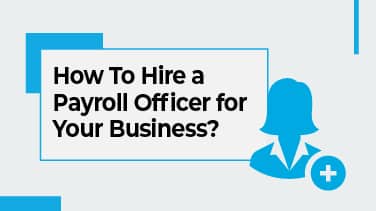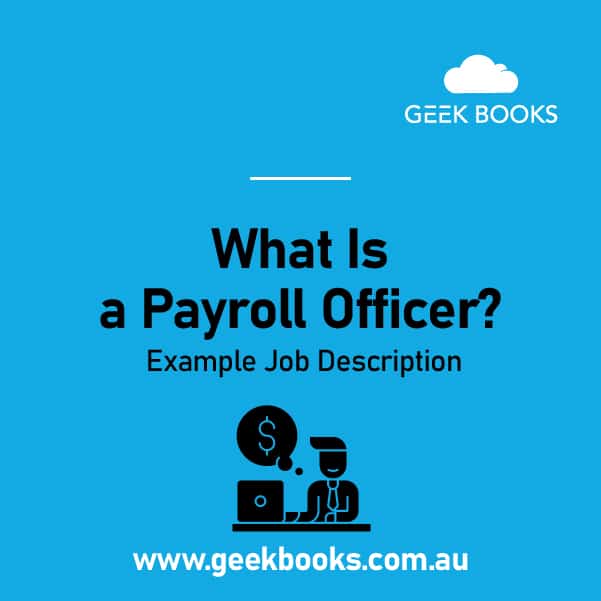As you dive into the world of entrepreneurship in Australia, you’ll soon discover that running a successful business is about more than just selling a fantastic product or offering an unmatched service.
Imagine this: it’s the end of the month, your team has been working hard, and now it’s time to pay them.
You might think, “Oh, that’s simple. I’ll just calculate the hours, multiply by the hourly rate, and transfer the money.”
Not so fast!
What about superannuation contributions? PAYG withholding? Fair Work pay rates and conditions? Payroll tax? Paying your employees can get complicated quickly!
Cue a payroll officer!
What is a payroll officer?
A payroll officer ensures your employees are paid accurately and on time.
They’ll help you stay compliant with Australian taxation and employment laws to avoid the pitfalls of payroll errors, like incurring penalties from the Australian Taxation Office (ATO).
The ATO collects hundreds of millions of dollars in penalties every year- a statistic you don’t want to become part of!
Hiring a competent payroll officer will streamline your payroll process, allowing you to focus on growing your business to its full potential.
Let’s find out how hiring the right payroll officer can be one of the best investments for your business’s future.

What Is a Payroll Officer, and What Are Some Job Description Examples?
A qualified payroll officer is responsible for organising and overseeing a business’s payroll processes. Their duties include
- Tracking and calculating employee work hours.
- Administering payments correctly and promptly.
- Deducting relevant taxes and superannuation.
- Complying with tax and employment laws.
- Handling payroll-related queries from employees.
Let’s make this role clearer with some real-world examples.
Example One: Small Retail Business Payroll Officer
Suppose you own a small retail business with ten employees working varying weekly hours.
Your payroll officer would monitor your employees’ work hours (either by timesheets or an electronic system), calculate their gross pay, and then deduct taxes and superannuation as required by law.
They would then issue payslips and transfer the funds to each employee’s account.
They would also make the necessary declarations and payments to the ATO.
Example Two: Tech Startup Payroll Officer
You run a tech startup with salaried employees who receive additional benefits such as bonuses and stock options.
Your payroll officer would manage the regular salary payments, seeing that these additional incentives are appropriately taxed and reported.
They would also handle any payroll changes related to employees’ changing contractual agreements or when they join or leave your company.
Example Three: Nonprofit Organisation Payroll Officer
You’re in charge of a nonprofit organisation that uses volunteers and paid staff.
Your payroll officer would handle the payroll for paid staff and could also be responsible for recording the contributions of volunteers, which, while not a financial transaction, is a crucial part of organisation record-keeping.
What Is the Role of a Payroll Officer?
A payroll officer helps build trust with your employees and lets you focus on other areas of your business, secure in the knowledge that your payroll is in expert hands.
Their role ensures
- Accuracy and timeliness when it comes to paying employees. Delays or inaccuracies in employee wages can harm morale and productivity, affecting your business’s bottom line.
- Regulatory compliance by staying up to date with the complex and ever-changing payroll tax laws to help you avoid fines and legal issues.
- Employee queries regarding their pay, deductions, and benefits are answered to free up your time.
- Precise record keeping of all payroll activities. Such records are essential for financial auditing, business analysis, and legal compliance.
- Benefits are administered, such as retirement contributions, health insurance, or paid time off.
- Regular payroll reporting to contribute to your financial strategy and business planning.
- Cost management by identifying trends and anomalies in your payroll data.
What Should a Payroll Officer Know?
A payroll officer should possess comprehensive knowledge and skills in several key areas.
- Payroll and tax laws: They should have an in-depth understanding of payroll and tax laws applicable in Australia, including the Fair Work Act, superannuation rules, and the PAYG (Pay As You Go) system.
- Payroll systems: Proficiency in popular payroll software (such as Xero or MYOB) is a must.
- Record keeping: A payroll officer should know how to maintain clear and confidential records for taxation and auditing purposes.
- Communication skills: They must communicate effectively to explain complex payroll matters to employees and handle payroll-related queries.
- Continuing education: The laws and regulations regarding payroll and taxes often change, so payroll officers should be committed to continuing their education to keep up with these changes.

What Is the Difference Between a Payroll Officer and Payroll Administrator?
| Payroll Officer | Payroll Administrator | |
|---|---|---|
| Role and responsibility | Oversees all aspects of payroll processing, including compliance with tax laws, handling employee inquiries, and liaising with other departments or external agencies. They may also be involved in strategic tasks like improving payroll processes. | Handles day-to-day payroll processing tasks, including gathering and verifying hours worked, calculating pay, and issuing checks or direct deposits. This is a more execution-focused role. |
| Level of authority | Usually positioned higher in the company hierarchy, they may oversee the work of payroll administrators in larger organisations. | Often reports to a payroll officer or another superior in the payroll department. |
| Experience and education | Typically requires more experience, a deeper understanding of payroll regulations and laws, and stronger interpersonal and managerial skills. | Generally requires less experience and is more focused on operational tasks. A basic understanding of payroll and relevant software is necessary. |

How To Hire a Payroll Officer for Your Business
So what is a payroll officer?
A payroll officer acts as the guardian of your payroll process by
- Helping pay your employees accurately and on time.
- Maintaining compliance with complex tax laws.
- Managing record-keeping.
- Handling employee payroll queries.
- Contributing to cost management.
However, finding the right person for the job can be a challenge.
You need someone with the right blend of knowledge, skills, and experience to navigate the intricacies of payroll.
We have the solution!
At GeekBooks, we offer comprehensive payroll services to run your payroll process like a well-oiled machine.
Our goal? To make your life easier!
Our team of experts stays up-to-date with the latest changes in laws and regulations, uses advanced payroll software, and delivers professional services tailored to your business needs.
Don’t leave your payroll to chance!
Speak to the payroll specialists at GeekBooks today by completing our online booking form or contacting us on 02 9158 3591.


